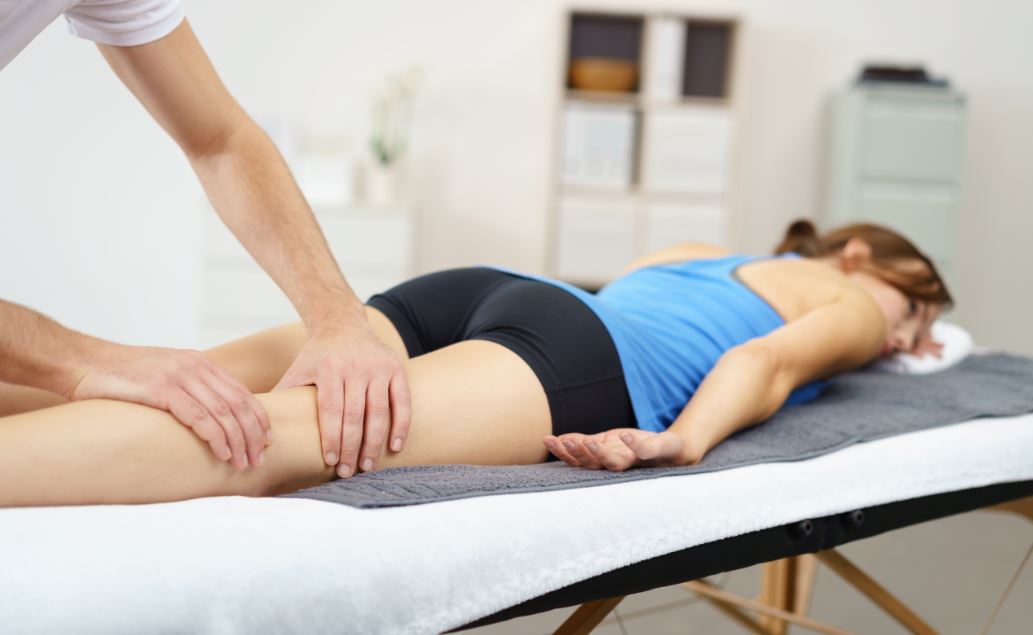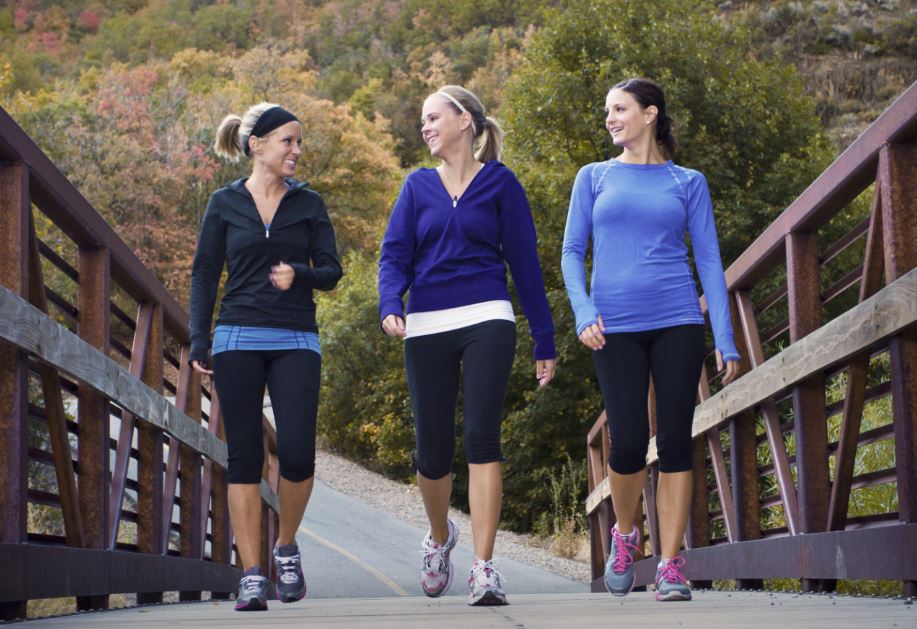How Many Days Should You Rest From Exercise?

There is a very common misconception among people who exercise regularly. They believe that more is better. We say that it is a misconception because overexerting yourself can have serious consequences for your health. In this article, we will tell you about the importance of rest from exercise and the consequences of overexertion, as well as how you can strike a perfect balance in your exercise plan.
Why do we need rest from exercise?
When certain people put their mind to something, there is no stopping them. For that reason, it is understandable that even if you feel pain or stiffness, you might want to continue going to the gym to train, thinking that otherwise you will not see results. However, this would be a huge mistake. For muscles to grow and become strong, rest from exercise is as necessary as the exercise itself.

Excessive exercise can entail a decline in performance, rise of arterial pressure, sleeping disorders, and more.
As we have explained on other occasions, muscles go through a process of breakage when exercising, and in order for them to recover from this, it is necessary that they have periods of rest. Otherwise, you could even cause irreparable damage to your muscles.
You must remember that over training does not only affect your body, but also your mind. Your emotions and state of mind greatly influence your performance. So even if your body is prepared for hard exercise, your mind can hinder your achievements.
So, how many days should you rest from exercise?
Many people try to work out at the gym every day of the week, and elite athletes typically work out for six weeks and rest for one. Even athletes rest. And of course, you are neither an elite athlete nor should you train in the same way.
If even they rest, think about how much more you should too!
A balanced number of days spent exercising will range between three and four days a week. If you go to the gym for one or two hours, you will see excellent results without endangering your health or your performance.
Consider the fact that elite athletes, also complement their workouts with nutrients and vitamins that help them recover muscle, something that most other people do not do. Your muscles must recover naturally as a result of rest from exercise.
Now, does this mean that on the remaining days of the week you should do nothing? Of course not, because that would contradict yourself–leading one active life and one sedentary life.
These two lifestyles would offset and you would not see good results.
What to do on rest days

On your days off from exercise, you do not have to stop completely and throw yourself on the couch to sleep and rest. In fact, it has been proven that a moderate exercise routine such as walking or swimming, or even skating at a slow pace, is beneficial for muscle recovery.
Yoga, pilates, and even zumba are other great options. A tip we can share, is if you exercise three or four days a week at a high intensity, you could go to the gym one or two days a week to try low-intensity classes, including the ones we just mentioned.
Additionally, there are several things you can do on your rest days to speed up your muscle recovery. For example, ice water baths, stretching, applying heat, or even massages. And of course, do not forget to maintain a healthy diet at all times, especially one that emphasizes the consumption of proteins, to nourish the muscles.
There is no standard to determine how many days per week you should rest from exercise, but it is absolutely necessary to do so. If you follow these guidelines, you can stay in shape every day of the week, while allowing your body to recover.
In the case of sports and exercise, the more the better myth no longer applies. Instead, quality and balance are the most important things. You can do it!
There is a very common misconception among people who exercise regularly. They believe that more is better. We say that it is a misconception because overexerting yourself can have serious consequences for your health. In this article, we will tell you about the importance of rest from exercise and the consequences of overexertion, as well as how you can strike a perfect balance in your exercise plan.
Why do we need rest from exercise?
When certain people put their mind to something, there is no stopping them. For that reason, it is understandable that even if you feel pain or stiffness, you might want to continue going to the gym to train, thinking that otherwise you will not see results. However, this would be a huge mistake. For muscles to grow and become strong, rest from exercise is as necessary as the exercise itself.

Excessive exercise can entail a decline in performance, rise of arterial pressure, sleeping disorders, and more.
As we have explained on other occasions, muscles go through a process of breakage when exercising, and in order for them to recover from this, it is necessary that they have periods of rest. Otherwise, you could even cause irreparable damage to your muscles.
You must remember that over training does not only affect your body, but also your mind. Your emotions and state of mind greatly influence your performance. So even if your body is prepared for hard exercise, your mind can hinder your achievements.
So, how many days should you rest from exercise?
Many people try to work out at the gym every day of the week, and elite athletes typically work out for six weeks and rest for one. Even athletes rest. And of course, you are neither an elite athlete nor should you train in the same way.
If even they rest, think about how much more you should too!
A balanced number of days spent exercising will range between three and four days a week. If you go to the gym for one or two hours, you will see excellent results without endangering your health or your performance.
Consider the fact that elite athletes, also complement their workouts with nutrients and vitamins that help them recover muscle, something that most other people do not do. Your muscles must recover naturally as a result of rest from exercise.
Now, does this mean that on the remaining days of the week you should do nothing? Of course not, because that would contradict yourself–leading one active life and one sedentary life.
These two lifestyles would offset and you would not see good results.
What to do on rest days

On your days off from exercise, you do not have to stop completely and throw yourself on the couch to sleep and rest. In fact, it has been proven that a moderate exercise routine such as walking or swimming, or even skating at a slow pace, is beneficial for muscle recovery.
Yoga, pilates, and even zumba are other great options. A tip we can share, is if you exercise three or four days a week at a high intensity, you could go to the gym one or two days a week to try low-intensity classes, including the ones we just mentioned.
Additionally, there are several things you can do on your rest days to speed up your muscle recovery. For example, ice water baths, stretching, applying heat, or even massages. And of course, do not forget to maintain a healthy diet at all times, especially one that emphasizes the consumption of proteins, to nourish the muscles.
There is no standard to determine how many days per week you should rest from exercise, but it is absolutely necessary to do so. If you follow these guidelines, you can stay in shape every day of the week, while allowing your body to recover.
In the case of sports and exercise, the more the better myth no longer applies. Instead, quality and balance are the most important things. You can do it!
All cited sources were thoroughly reviewed by our team to ensure their quality, reliability, currency, and validity. The bibliography of this article was considered reliable and of academic or scientific accuracy.
- Bosch. J. (2007). El músculo. Servicio de Rehabilitación Hospital San Rafael. https://www.granollers.cat/sites/default/files/importades_d6/pagina/2012/01/El%20M%C3%BAscul%5B1%5D…pdf
- Gavia, N. I. D., Luján, R. C., de León Fierro, L. G., Rodríguez, B. O., & Legleu, C. E. C. (2022). La hidroterapia y sus efectos sobre el dolor muscular tardío en deportistas: una revisión sistemática. Retos digital, 46, 733–738. https://dialnet.unirioja.es/servlet/articulo?codigo=8557079
- Sancho, A. Z., & Juan, F. R. (2013). Variables predictoras de la ansiedad en atletas veteranos españoles. Retos digital, 23, 29–32. https://dialnet.unirioja.es/servlet/articulo?codigo=4135226
This text is provided for informational purposes only and does not replace consultation with a professional. If in doubt, consult your specialist.








